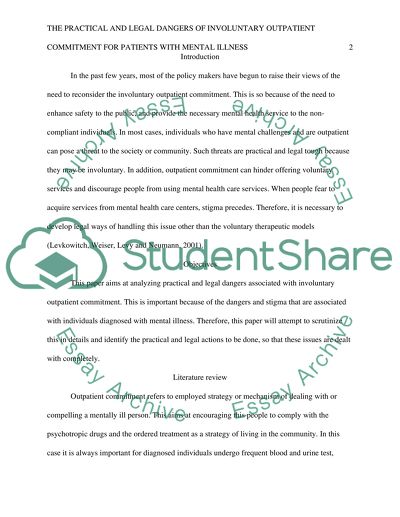Cite this document
(“The Practical and Legal Dangers of Involuntary Outpatient Commitment Research Paper”, n.d.)
Retrieved from https://studentshare.org/nursing/1441490-the-practical-and-legal-dangers-of-involuntary
Retrieved from https://studentshare.org/nursing/1441490-the-practical-and-legal-dangers-of-involuntary
(The Practical and Legal Dangers of Involuntary Outpatient Commitment Research Paper)
https://studentshare.org/nursing/1441490-the-practical-and-legal-dangers-of-involuntary.
https://studentshare.org/nursing/1441490-the-practical-and-legal-dangers-of-involuntary.
“The Practical and Legal Dangers of Involuntary Outpatient Commitment Research Paper”, n.d. https://studentshare.org/nursing/1441490-the-practical-and-legal-dangers-of-involuntary.


